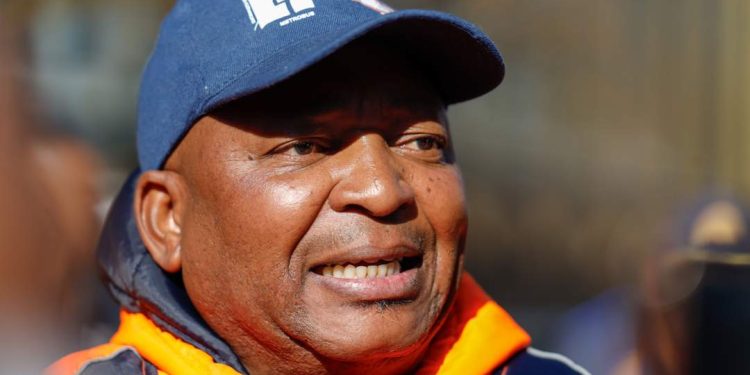Patriotic Alliance (PA) deputy president Kenny Kunene has strongly criticised the Equality Court’s ruling that found the controversial “Kill the Boer” chant, led by Economic Freedom Fighters (EFF) leader Julius Malema, does not constitute hate speech. Kunene has called for the decision to be challenged in court, warning that the judgment risks deepening racial divisions in South Africa.
The ruling, delivered earlier this year, concluded that the chant – sung by Malema and senior EFF leaders at various political rallies – falls within the historical context of struggle songs from South Africa’s apartheid era and is therefore protected under freedom of expression laws. The decision was hailed by the EFF as a victory for political and cultural expression, with Malema describing it as a reaffirmation of the country’s revolutionary past.
However, speaking at a press conference in Johannesburg, Kunene offered a scathing response to the court’s findings. He argued that the judgment sets a dangerous precedent by excusing language that can incite violence and promote racial hatred.
“When Malema calls people ‘cockroaches’ and sings songs about killing, it is hate speech – nothing else,” Kunene stated. “History has taught us that calling people cockroaches was the prelude to genocide, as seen in Rwanda in 1994. South Africa cannot afford such rhetoric.”
Kunene drew direct comparisons between Malema’s language and the propaganda that contributed to the 1994 Rwandan genocide, warning that such dehumanising language could escalate tensions in an already fragile social environment. He also accused the judiciary of enabling political populism at the expense of national unity.
“This ruling emboldens Malema to continue spreading division under the banner of struggle songs,” Kunene said. “The law must draw a clear line between cultural heritage and outright hate. Freedom of expression does not cover incitement to violence.”
Kunene further criticised what he views as inconsistency in how hate speech laws are applied, claiming that ordinary citizens would likely face swift legal consequences if they used similar language. “There is a dangerous double standard. When an ordinary person says something offensive, they face the full might of the law. But when Malema does it, he’s celebrated.”
His comments come at a time of heightened political uncertainty as South Africa adjusts to its newly formed Government of National Unity (GNU), a coalition arrangement necessitated by the results of the 2024 general elections. The Patriotic Alliance, a growing force in South African politics, has positioned itself in opposition to both the African National Congress (ANC) and the EFF.
Legal experts suggest that any potential appeal to the Equality Court’s ruling would likely focus on whether the court gave due weight to the chant’s contemporary implications, beyond its historical origins. While the chant “Kill the Boer, kill the farmer” was historically used during anti-apartheid protests, critics argue that its continued use today can no longer be viewed in isolation from current socio-political dynamics.
“The law must evolve with society,” Kunene argued. “What might have once been a revolutionary call in the 1980s cannot be allowed to incite hatred and violence in 2025.”
Kunene concluded by appealing to South Africans to reject leaders who, in his words, “profit from hate.” He warned that the failure to confront inflammatory rhetoric would only undermine efforts toward national reconciliation and healing.
“We must say no to those who divide us for their own gain. South Africa needs leaders who build bridges, not burn them.”
The PA has not yet confirmed whether it will support or file a formal appeal, but Kunene’s comments have intensified public debate around the legal and ethical limits of political speech in a diverse and often polarised democracy.






















